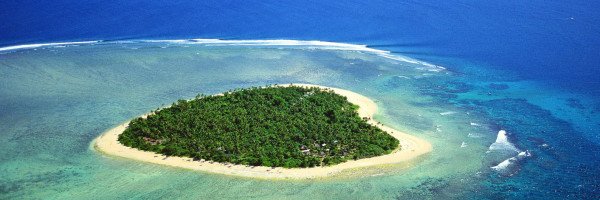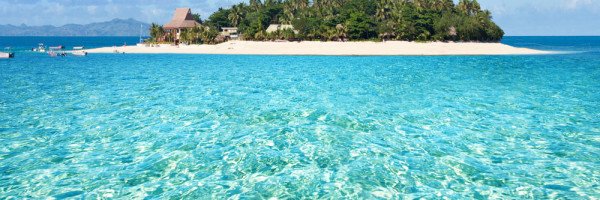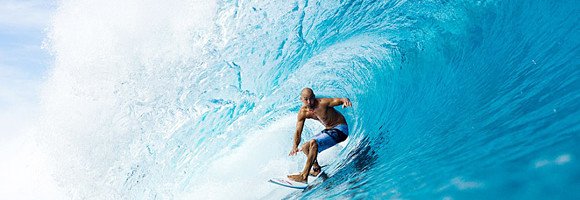Understanding Community-Based Fisheries in Fiji
Community-based fisheries in Fiji play a crucial role in maintaining the ecological balance of coastal environments while supporting local livelihoods. These fisheries are characterized by local management practices that emphasize sustainable harvesting, conservation of marine resources, and community involvement. The Fijian model focuses on the collective stewardship of marine areas, where communities take responsibility for monitoring fish stocks, enforcing regulations, and participating in decision-making processes. This cooperative approach not only enhances the sustainability of fish populations but also fosters social cohesion within communities. According to the Fiji Islands tourism website, these practices contribute to the preservation of the unique biodiversity found in Fiji’s marine ecosystems, making it an attractive destination for eco-tourism. For New Zealand, adopting similar community-based fisheries management could enhance local fish stocks and promote sustainable fishing practices, allowing communities to thrive while protecting marine resources.The Impact of Community-Based Fisheries on Coastal Ecosystems
The implications of community-based fisheries extend beyond fish populations; they significantly impact coastal ecosystems. In Fiji, these fisheries are often linked to the protection of coral reefs, mangroves, and seagrass beds, which serve as critical habitats for various marine species. By implementing traditional fishing practices, such as seasonal closures and no-take zones, Fijian communities can restore and maintain the health of these ecosystems. For New Zealand, the integration of community-based management strategies could lead to improved coastal resilience against climate change and overfishing. Engaging local communities in conservation efforts can help safeguard crucial marine environments, enhancing biodiversity and ensuring the sustainability of fisheries. Additionally, fostering a culture of stewardship can inspire a new generation of environmentally conscious fishers dedicated to preserving New Zealand’s unique marine heritage.Economic Benefits of Community-Based Fisheries
Community-based fisheries in Fiji not only contribute to environmental sustainability but also provide significant economic benefits to local communities. By promoting responsible fishing practices, communities can ensure a steady supply of seafood, which is essential for food security and economic stability. Moreover, sustainable fisheries attract tourism, as visitors seek authentic experiences that support local economies while preserving the environment. New Zealand could benefit from a similar model by prioritizing sustainable fisheries management that supports local economies. Initiatives such as community-supported fisheries (CSFs) can help connect consumers with local fishers, fostering a direct relationship that emphasizes the importance of sustainability. By investing in local seafood markets and promoting sustainable fishing practices, New Zealand can enhance its marine economy while supporting environmental conservation.Challenges Faced by Community-Based Fisheries
Despite the numerous benefits of community-based fisheries in Fiji, challenges persist that can hinder their effectiveness. These include external pressures such as climate change, overfishing by industrial fleets, and habitat degradation. Additionally, many communities face difficulties in enforcing regulations and securing the necessary resources for sustainable management practices. New Zealand can learn from these challenges by proactively addressing similar issues within its own fisheries. Implementing robust policies that protect local fisheries from external threats is crucial. Moreover, providing support for community-led initiatives, such as training programs and funding for conservation projects, can strengthen the capacity of local fishers to manage their resources sustainably. Collaboration between government agencies, NGOs, and local communities is essential to create a resilient fisheries management framework.Policy Implications for Marine Resource Management
The experiences of community-based fisheries in Fiji provide valuable insights for policymakers in New Zealand. Effective marine resource management requires policies that empower local communities and recognize their traditional knowledge and practices. By integrating community input into decision-making processes, New Zealand can develop more inclusive and effective fisheries management strategies. Fiji’s approach demonstrates the importance of decentralization in fisheries management. New Zealand could benefit from policies that allow for localized management, enabling communities to tailor practices to their specific ecological and social contexts. Furthermore, investing in educational programs that raise awareness about sustainable fishing practices can foster a culture of conservation among fishers and the public.Case Studies of Successful Community-Based Fisheries in Fiji
Several successful case studies of community-based fisheries in Fiji highlight the effectiveness of this approach. For instance, the establishment of marine protected areas (MPAs) has shown significant improvements in fish populations and biodiversity. Communities involved in these initiatives have reported increased catches and improved livelihoods, demonstrating the potential for sustainability when local knowledge is integrated into management practices. New Zealand can draw inspiration from these case studies by exploring the feasibility of MPAs and community-led conservation efforts in its waters. Collaborative projects that involve local fishers, scientists, and government agencies can lead to successful outcomes, enhancing both marine biodiversity and local economies. By sharing best practices and lessons learned from Fiji, New Zealand can develop innovative strategies for sustainable fisheries management.The Future of Community-Based Fisheries and Marine Sustainability
As the world grapples with the impacts of climate change and overfishing, the future of community-based fisheries looks promising. In Fiji, ongoing efforts to strengthen community engagement and enhance sustainable practices are paving the way for resilient coastal ecosystems. The integration of traditional knowledge with scientific research is essential for adapting to changing environmental conditions. For New Zealand, the future of marine sustainability hinges on embracing community-based fisheries management. By fostering collaboration among stakeholders, investing in sustainable practices, and promoting local stewardship, New Zealand can ensure the health of its marine resources for generations to come. Ultimately, the lessons learned from Fiji’s community-based fisheries can serve as a model for New Zealand in its quest for sustainable marine resource management.FAQs
What are community-based fisheries in Fiji?
Community-based fisheries in Fiji refer to local fishing practices that are managed and governed by the communities themselves, focusing on sustainable resource use to support both livelihoods and ecological health. These initiatives empower local fishermen to take charge of their marine resources while fostering conservation efforts that align with their cultural values and traditions.
How do community-based fisheries contribute to coastal sustainability in Fiji?
Community-based fisheries contribute to coastal sustainability by promoting responsible fishing practices, protecting marine biodiversity, and ensuring the long-term health of fish stocks. By involving local communities in the management of their resources, these initiatives help to balance ecological needs with economic interests, leading to healthier coastal ecosystems and resilient communities.
What lessons can New Zealand learn from Fiji’s community-based fisheries?
New Zealand can learn valuable lessons from Fiji’s community-based fisheries by recognizing the importance of local knowledge and engagement in resource management. Implementing similar community-driven approaches could enhance New Zealand’s marine resource sustainability, ensuring that fishing practices are ecologically sound and culturally appropriate, while also promoting community well-being.
How does sustainable agriculture in Fiji relate to community-based fisheries?
Sustainable agriculture in Fiji relates to community-based fisheries through the shared goal of promoting environmental stewardship and resource conservation. Both sectors emphasize the importance of maintaining ecological balance and supporting local economies. By integrating sustainable agricultural practices with community-based fisheries, Fiji can enhance food security and resilience in coastal areas.
What are the economic benefits of community-based fisheries for Fijian communities?
The economic benefits of community-based fisheries for Fijian communities include increased income through sustainable fishing practices, job creation, and enhanced food security. By directly managing their resources, local communities can capitalize on the value of their catch while ensuring that fish populations remain healthy for future generations.
What challenges do community-based fisheries face in Fiji?
Community-based fisheries in Fiji face several challenges, including overfishing, climate change impacts, and limited access to markets. Additionally, there may be conflicts over resource use among different stakeholders. Addressing these challenges requires effective governance, community engagement, and support from both local and national levels to ensure sustainable practices are upheld.
How can community-based fisheries impact marine resource management in New Zealand?
Community-based fisheries can significantly impact marine resource management in New Zealand by fostering collaborative governance and encouraging local stewardship. By adopting community-driven management practices similar to those seen in Fiji, New Zealand can enhance its marine conservation efforts, promote sustainable fishing, and strengthen the connection between communities and their marine environments.
References
- Fiji Islands Official Tourism Website – This site provides an overview of Fiji’s marine resources and the importance of sustainable practices in the coastal communities.
- FAO – Fiji Country Profile – This profile offers insights into Fiji’s fisheries management and the community-based approaches that support sustainability.
- Fiji’s National Biodiversity Strategy and Action Plan – This document outlines the strategies for conserving marine biodiversity in Fiji, emphasizing community involvement in fisheries management.
- Community-Based Fisheries Management in Fiji: Impacts on Resource Condition and Fishing Income – This research paper discusses the outcomes of community-based management practices on fish stocks and local economies in Fiji.
- Marine Resources and Ecosystem Services in New Zealand – This report examines the management of marine resources in New Zealand and draws parallels with community-based fisheries approaches in Fiji for sustainability.







